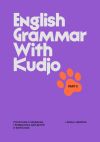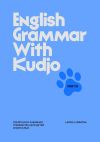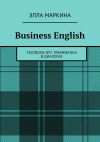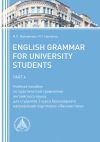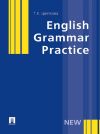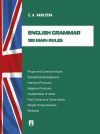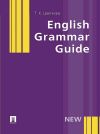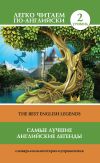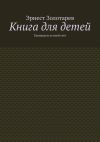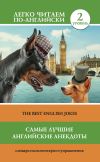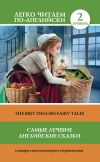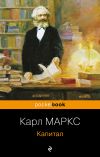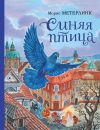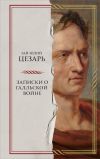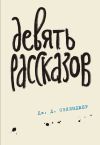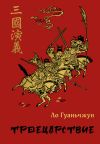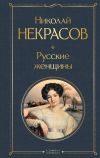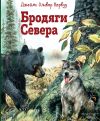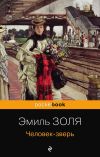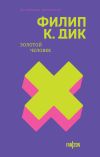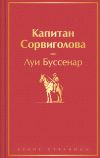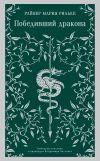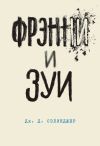Текст книги "English grammar with Kudjo. Понятная и забавная грамматика для детей и взрослых. Part 1"
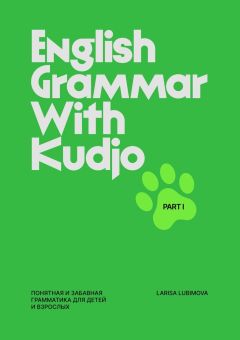
Автор книги: Larisa Lubimova
Жанр: Языкознание, Наука и Образование
Возрастные ограничения: +6
сообщить о неприемлемом содержимом
Текущая страница: 1 (всего у книги 7 страниц) [доступный отрывок для чтения: 2 страниц]
English grammar with Kudjo
Понятная и забавная грамматика для детей и взрослых. Part 1
Larisa Lubimova
Cover designer Роман Любимов
© Larisa Lubimova, 2024
© Роман Любимов, cover design, 2024
ISBN 978-5-0062-2871-9 (т. 1)
ISBN 978-5-0062-2872-6
Created with Ridero smart publishing system
Как все началось?
Идея этой книги возникла, когда я готовилась к занятиям со своими студентами, думала, как разнообразить скучный грамматический материал и придумать интересные упражнения, как вдруг мой собакен подошел ко мне, сел и дал лапу-” готов к сотрудничеству за небольшую награду”, и все – теперь мы одна команда.
Я решила написать эту книгу, чтобы развеять миф, что грамматика– это скучно и тяжело. Поверьте, она может быть увлекательной и простой. Кстати, не стоит думать, что это учебник только для детей. Взрослые тоже найдут много полезного и неожиданного для себя. Книга рассчитана на уровень pre-intermediate, но ее можно использовать и тем, чей уровень чуть ниже.
Немного о структуре книги: каждый раздел посвящен определенному грамматическому аспекту, в нем есть не только подробное объяснение, но и много интересных упражнений, которые помогут не только лучше закрепить ваши грамматические знания, но и развить воображение и расширить словарный запас. С каждым разделом количество упражнений растет! И совсем скоро мы будем вместе придумывать приключения Куджо.
Кстати, словарь и ответы к каждому разделу вы найдете в конце книги.
Начнем?
Follow Kudjo!
Unit 1
The Present
Continuous Tense
Настоящее продолженное время
Некоторые знают это время под другим именем– the Present Progressive Tense, но нам с Куджо больше нравится именно это. Для чего это время и чем оно отличается от других настоящих времен? Как строится и с какими сигнальными словами используется? Есть ли какие-нибудь ловушки?
Итак, начнем с самого главного – структуры предложения в этом времени:
подлежащее + am/is/are + глагол с окончанием – ing
I am writing a book now.
если разобрать это предложение “по косточкам”, получается – Я есть пишущий книгу сейчас.
В этом времени мы меняем только форму глагола to be в зависимости от числа и лица:
• I am thinking about the Present Continuous Tense now.
• You are thinking about the Present Continuous Tense now.
• He is thinking about the Present Continuous Tense now.
• She is thinking about the Present Continuous Tense now.
• We are thinking about the Present Continuous Tense now.
• You are thinking about the Present Continuous Tense now.
• They are thinking about the Present Continuous Tense now.

Look at Kudjo.
What is he doing?
– He is reading a big book about something exciting.
– He is sticking his tongue with great pleasure.
– He is wiggling his ears while he is reading.
– He is lying on the blue sofa.
– He is relaxing.
EXERCISE 1
Придумай как можно больше предложений из данных слов, используя время Present Continuous:
a cow, dance, two, I, hop-scotch, green, clap our hands, swim, big, in the garden, grass, a crow, funny, now, crocodiles, a clown, fat, make up, eat, bark at, strange, on our neighbor’s lawn, in the river, Kudjo, play, we, around, little, they, sentences.
For example,
I am making up strange sentences now.
Отрицательное предложение строится при помощи отрицательной частицы not, которая ставится сразу после вспомогательного глагола:
подлежащее + am/is/are + not + глагол с окончанием – ing
Kudjo is not sleeping now, he is reading.
чаще всего мы используем сокращенную форму:
aren’t, isn’t
однако для I более правильным сокращением будет I’m not
He isn’t eating anything, he’s chewing his toy.
They aren’t fighting, they’re playing.
I’m not crying, I’m laughing.
EXERCISE 2
Поставьте слова в скобках в правильную отрицательную форму:
1. Kudjo /not hide/ his bone, he /put/ it in a secret place for bones.
2. Kudjo /not stay/ at home, he /go/ out with everybody now.
3. Kudjo /not bark/ now, he /snarl/.
4. We /not play/ with Kudjo now, we /play/ frisbee with each other.
5. I /not feed/ Kudjo now, I /give/ him some fresh water.
Вопросительное предложение строится следующим образом:
(вопросительное местоимение) + am/is/are + подлежащее + глагол с окончанием – ing?
What is Kudjo doing now?
Where is he running?
Why is he barking?
When are they meeting tonight?
Who are you laughing at?
Are you listening to me?
EXERCISE 3
Поставьте слова в скобках в правильную вопросительную форму:
1. Why Kudjo /lie/ under the blanket? Is he afraid of fireworks?
2. Kudjo /sleep/ or /read/ now?
3. Who Kudjo /roar/ at now?
4. Where you /go/without Kudjo?
5. they /play/ hide-and-seek in the backyard now? I don’t see anybody.
EXERCISE 4
Посмотрите на эту картинку и придумайте как можно больше утвердительных, отрицательных и вопросительный предложений в нашем времени Present Continuous:
For example,
What are the dogs doing?
Are they dancing?
No, they aren’t. They are not dancing now.
Are they fighting?
No, they aren’t. They are not fighting now.
Are they boxing?
No, they aren’t. They are not boxing now.
Are they playing?
Yes, they are. They are playing in the snow.

Как вы уже поняли, мы используем это время, когда говорим о каком-то событии, которое происходит сейчас, в момент речи, сегодня, в настоящее время и т. п.
Каждое время в английском имеет свои сигнальные слова-маркеры, которые помогают нам определиться с нужным временем. Какие же слова указывают на время Present Continuous?
now, at the moment, at present, currently, today, tonight, this week /month, year…/
EXERCISE 5
Придумай предложения про себя и своих близких с маркерами времени Present Continuous:
For example,
Kudjo is seeing his friend tonight.
1 now
2 at the moment
3 today
4 at present
5 tonight
EXERCISE 6
Выгляните из окна– что сейчас происходит на улице? Напишите и не забудьте поставить правильную форму глагола:
For example,
My neighbor is cleaning his car from the snow now.
EXERCISE 7
Переведи эти предложения, используя время Present Continuous.
1. Куджо сейчас лает на толстую ворону, которая сидит на нашей машине.
2. Почему Куджо и его друзья бегают по всему саду сейчас?
3. Я сейчас пишу эту книгу, а Куджо мне помогает.
4. Мы сегодня не остаемся дома, а идем на выставку собак.
5. – Куджо сейчас спит? – Нет, он читает свою любимую книгу.
Ловушки времени Present Continuous
В английском языке есть глаголы состояния, которые не могут использоваться во временах Continuous. Список таких глаголов довольно большой, но нам пока будет достаточно знать 20 основных глаголов:
like, love, want, hate, need, prefer, know, belong to, be, understand, forgive, believe, have, remember, forget, think, see, hear, smell, taste
И даже если Куджо очень хочется сказать – “Я сейчас хочу эту косточку”, он скажет: ‘I want this bone now’. а не “I am wanting this bone now.”
На помощь приходит время Present Simple.
Unit 2
The Present Simple Tense
Настоящее простое время
Пусть вас не сбивает с толку название– это время совсем и не такое простое, у него есть свои сложности и ловушки. Простым его назвали потому, что глагол состоит из одной формы с одним единственным окончанием -s в 3ем лице единственного числа.
подлежащее + глагол.
I wake up earlier than Kudjo.
подлежащее 3 лицо ед. ч. + глагол с окончанием –
(e) s.
Kudjo wakes up very late.
Мы используем это время, когда говорим о регулярных, обычных действиях, которые происходят часто, всегда, каждый день и т. д.
Поэтому основные маркеры времени Present Simple являются такие слова, как: usually, always, never, hardly ever, seldom, rarely, often, frequently, regularly, sometimes, occasionally, every day (morning, week, month, etc.)
Look at Kudjo’s morning:
He usually wakes up at 8.30.
He regularly goes for a walk at 8.40.
He sometimes comes back home at 9.00 or later.
He frequently has breakfast at 9.15.
He always brushes his teeth after breakfast.
He often reads a little and falls asleep on the book.
He never plays in the morning.
He usually sleeps till lunchtime.
He hardly ever wakes up even if he hears strange sounds.
He does all these things every morning without any changes.

EXERCISE 1
Какое утро у вас? Напишите о своем обычном утре в понедельник, используя данные глаголы в Present Simple:
1 wake up
2 get up
3 have a shower
4 have a yummy breakfast
5 talk to
6 get dressed
Вы обратили внимание на место маркеров в предложении? В основном все наречия частотности стоят перед основным глаголом, более длинные сочетания (every day, etc.) в конце предложения.
EXERCISE 2
Придумайте свои предложения, используя данные наречия частотности и время Present Simple:
For example, I never have breakfast in bed.
1 hardly ever
2 often
3 always
4 seldom
5 usually
6 every weekend
Так как глагол в этом времени состоит из одной формы, для отрицательных и вопросительных предложений требуется вспомогательный глагол do (es).
В этом и заключается вторая сложность нашего “простого” времени.
Отрицательные предложения строятся по следующей схеме:
подлежащее + do (es) + глагол.
Kudjo doesn’t like fruit and vegetables.
I don’t give him any food from the table.
Кстати, мы опять используем сокращенные формы don’t /doesn’t, которые звучат более естественно, чем полные формы do not/does not.
EXERCISE 3
Поставьте глагол в правильную форму:
1 Kudjo /not want/to stay at home alone.
2 I /not let/ my dog eat chocolate.
3 They /not meet/ every day, only at the weekends.
4 We /not go/ for a walk at night.
5 Kudjo /not bite/ any people, he /love/ all of them.
6 Kudjo /not sleep/ in my bed, he /prefer/ his own one.
Вопросительные предложения строятся по следующей схеме:
(вопросительное слово) + do (es) + подлежащее + глагол?
What does Kudjo like eating?
What do you hate doing in the mornings?
EXERCISE 4
Поставьте глагол в правильной вопросительной форме:
1 Where he usually /go/ for a walk?
2 What toys he /like/ playing with?
3 you /choose/ books for him or he /choose/ himself?
4 you /have/ any pets at home?
5 Why he /love/ walking so much?
6 What time he always /wake/up?
EXERCISE 5
Поставьте вопрос к выделенному слову:
1 Kudjo hardly ever eats eggs, no matter fried or boiled ones.
2 I take my dog for a walk three times a day.
3 But he believes that he takes me for a walk.
4 We often watch series together in the evenings.
5 He jumps happily whenever somebody visits us.
6 Kudjo always cries when I leave him alone.
EXERCISE 6
Поставьте глагол в правильную утвердительную, вопросительную и отрицательную форму:
1 Kudjo /know/ everything about cats and rats.
2 We /not watch/ films about dogs because they are too moving.
3 Kudjo /bark/ loudly at home? – No, he /not/.
4 Kudjo never /go/ for a walk alone.
5 Kudjo /catch/birds?
6 Kudjo /love/ listening to my stories about him.
EXERCISE 7
Переведите предложения, используя время Present Simple:
1 Куджо всегда виляет хвостом, когда кто-нибудь к нему подходит.
2 Мы часто разговариваем с ним о собачьих проблемах.
3 Он не говорит по-китайски, но говорит на английском и русском.
4 Как часто ты разговариваешь со своим питомцем?
5 О чем собаки обычно разговаривают, когда встречаются?
6 Куджо не обижает щенков, даже когда они на него прыгают.
EXERCISE 8
Давайте вместе придумаем рассказ про Куджо. Поставьте недостающее слово:
Kudjo ***** to the park every day in any weather. He loves ***** a lot because of snow and frost. We often make ***** together when there’s a lot of *****.

He usually makes very ***** snowmen. After he finishes, he ***** it very carefully. He even ***** it and tastes it! Every time when I put a ***** as a nose for a snowman, he pulls it out and ***** it. But he never eats carrots at home!
Unit 3
Present Simple and Present Continuous Tenses
Как научиться различать эти два времени? Сложность в том, что в русском языке между глаголами в предложениях– Он сейчас спит. и Он спит по 18 часов каждый день. – нет никакой разницы. В английском же это совсем разные времена – He is sleeping now. и He sleeps 18 hours a day.
В первую очередь на помощь приходят маркеры, о которых мы уже говорили в предыдущих разделах.
Если их не оказалось в предложении, то тогда надо определить: происходит ли это всегда (регулярно) —
Present Simple: The sun rises in the east.
или только сейчас (временно) —
Present Continuous:
Look! The sun is rising.
Не стоит забывать, что есть глаголы, которые просто не могут иметь форму Continuous и поэтому они всегда будут использоваться только в форме Simple:
He sees the sun rising now.
Do you believe me now?
At present I understand everything.
К этим коварным глаголам мы еще вернемся чуть позже.
Look at Kudjo again:

Now he is lying in the snow. But usually he lies on the sofa.
What are you doing now?
I am reading now.
What do you usually do at this time?
I usually read.
EXERCISE 1
Поставьте глагол в правильную форму:
1 Look! Who /run/ around the garden?
2 At night he always /sleep/ on the floor next to my bed
3 I /know/ all your secrets now.
4 Kudjo usually /eat/ not much, but currently he /eat/ a lot.
5 Sorry, we can’t come to you. We /meet/ our friends tonight.
6 Kudjo is busy now. He /dig/ his toy under a tree.
7 He /not remember/ now where he has hidden a bone.
EXERCISE 2
Выберите правильный маркер:
every day, in the evening, now, at the moment, On Mondays, this Tuesday, hardly ever.
1 He ***** wakes up during the night. He sleeps like a log.
2 ***** we go to a little cafe around the corner.
3 Kudjo is listening to his favorite audiobook “How to bring up a dog” *****.
4 ***** we usually go to the market to buy fresh beef.
5 ***** we are going to the vet dentist. Kudjo is terrified.
6 He enjoys watching some detective series *****.
7 He is waiting for me with his leash in teeth at the door *****.
EXERCISE 3
Поставьте глагол в форму Present Simple или Present Continuous

Today is very hot and the sun /shine/. It is too boiling and Kudjo /swim/ in a forest bog. He hardly ever /swim/ in such places but today he couldn’t stand the heat. He /feel/ so happy now! But he /look/ so dirty! I /look/ at him now and /think/ of making a good bath for him when we /come/ back home.
EXERCISE 4
Куджо сейчас на море и пишет сообщение своей подруге. Поставь глаголы в правильную форму:

I /have/ the time of my life at the sea. I /love/ this place very much! Every day we /wake/ up very early, at 6 am and immediately /rush/ to the sea, which is 5 min from our house. We /run/, / jump/ and /play/ a game of catch. We /swim/ a lot! Right now I / text/ you from the beach.The sun /shine/. The waves / rise/ and /fall/. I am not afraid of them, but I /hate/ these jelly-fish everywhere.Ugh!
Кстати, маркер always, который показывает на форму Present Simple, на самом деле может использоваться еще и с Present Continuous. В этом случае мы его употребляем для выражений, сильных эмоций (чаще всего, негативных). Поэтому если вы говорите: He always barks at other dogs. это звучит абсолютно нейтрально. Но стоит вам сказать: He is always barking at other dogs! как все понимают, что это вас раздражает.
EXERCISE 5
Подумайте в каких из этих предложений можно выразить свое недовольство при помощи Present Continuous:
1 Kudjo always /sleep/ fast in the afternoon.
2 Kudjo always /try/ to look into every bag!
3 Kudjo always /take/ my gloves to play with!
4 Kudjo always /help/ me cook meat and fish.
5 Kudjo always /drink/ a lot. He can drink 2 liters of water a day.
6 Kudjo always /come/ back home very slowly, like a snail. It’s sometimes so annoying!
7 Kudjo always /sit/ down when he doesn’t want to do something!
Если вы помните, я обещала еще вернуться к коварным глаголам, которые не хотят стоять в форме Present Continuous?
Итак, в этом списке есть несколько самых коварных глаголов, которые в одном значении могут использоваться в форме Continuous, а в другом нет.
Посмотрим, как это работает на примере самых распространенных глаголов из этого списка:
think
в значении полагать, иметь мнение только в Simple:
I think you are right.
в значении думать, размышлять может стоять в Continuous:
I am thinking of going on holiday.
see
в значении видеть, понимать только в Simple:
He sees very well, especially in the dark.
в значении встречаться может стоять в Continuous:
He is seeing his friend tonight.
have
в значении иметь, обладать только в Simple:
He has a lot of toys.
в глагольных сочетаниях (have breakfast, have a shower, have a walk, have a swim, etc.) может стоять в Continuous:
He is having a bath now.
smell
в значении пахнуть только в Simple:
He smells fine after a shower now.
в значении нюхать может стоять в Continuous:
He is smelling his food. Why?
taste
в значении быть на вкус только в Simple:
The meat tastes delicious.
в значении пробовать может стоять в Continuous:
He is tasting new food carefully at the moment.
look
в значении выглядеть только в Simple:
He looks so fluffy and cute now!
в значении смотреть и т. п. может стоять в Continuous:
He is looking for his ball but can’t find it anywhere.
EXERCISE 6
Поставьте глагол в каждой паре в Simple или Continuous :
1 have
a We *****a delicious dinner now
b We ***** a lot of books about dogs at home.
2 see
a I ***** that Kudjo is hungry.
b We ***** our family this weekend.
3 look
a He ***** so miserable now!
b Everybody ***** at Kudjo because he is carrying a big bone in his mouth.
4 smell
a He ***** so fruity now!
b He ***** the snow suspiciously.
5 taste
a His lunch ***** very good.
b He ***** a new bone
6 think
a Look at him! He ***** of doing something naughty!
b I ***** he wants to go out immediately.
7 have
a He ***** a lot of tasty food.
b He ***** a nap. Don’t bother him.
EXERCISE 7
Представьте свой идеальный день. Напишите: что вы делаете в данный момент и что вы обычно делаете в это время:
For example,
It’s 8 a.m and Kudjo is running with our dogs in a garden where tasty treats grow in the trees.
He usually wakes up at 8 a.m.
EXERCISE 8
Отметьте правильный вариант ответа:
1 Kudjo ***** football with professionals now.
a playing
b plays
c is playing
2 Kudjo ***** a robot-hoover.
a hate
b is hating
c hates
3 Kudjo ***** sleeping with toys.
a enjoys
b enjoy
c is enjoying

4 Kudjo hardly ever ***** for a walk without a leash.
a go
b goes
c going
5 We ***** the shopping together today.
a doing
b are doing
c do
6 Kudjo ***** milk because of the white color.
a don’t drink
b doesn’t drink
c isn’t drinking
7 Don’t touch this toy! It ***** to Kudjo.
a is belonging
b belong
c belongs
EXERCISE 9
Переведите предложения, используя Present Simple and Present Continuous:
1 Куджо любит гулять зимой, когда ужасно холодно.
2 Мы сегодня идем выбирать новую игрушку для моей собаки.
3 Куджо редко играет дома, но всегда отнимает игрушки у других собак на улице! (это мне очень не нравится)
4 Ты видишь Куджо сейчас? Что он делает?
5 Он не смотрит дог-шоу, он крепко спит.
6 Он не понимает тебя сейчас. Говори по-английски.
7 Куджо сейчас обедает. Он всегда ест после прогулки.
Unit 4
Past Simple Tense
Простое прошедшее время
Прошедшее простое время показывает регулярное, законченное действие в прошлом. Все глаголы делятся на правильные и неправильные. Правильные глаголы (regular verbs) образуют форму Past Simple с помощью окончания -ed, в то время как неправильные (irregular verbs) имеют свою особую форму, которую можно найти в таблице неправильных глаголов в конце книги.
Например, купил -bought, закрыл-closed.
Утвердительное предложение выглядит так:
подлежащее + глагол в форме Past Simple.
Kudjo woke up five minutes ago.
EXERCISE 1
Поставьте глагол в форму Past Simple:
When Kudjo /be/ a little puppy,
1 he /play/ all day long.
2 he /have/ too long legs and /fall/ down every time
3 he /love/ all the dogs that he /meet/.
4 he /taste/ everything that he /find/.
5 he /bark/ when he /be/ excited and he /be/ excited 20 hours a day!
6 he /can/ go 10 km non-stop.
7 he /enjoy/ looking at his reflection in mirrors and shop windows.
8 he /love/lying next to the laptop and watching me working.

Отрицательная и вопросительная формы строятся точно так же, как и в Present Simple при помощи вспомогательного глагола do в прошедшем времени– did.
Обратите внимание, что сам основной глагол при этом остается в нулевой форме.
Структура отрицательного предложения:
подлежащее+ did + not + глагол.
He didn’t go downstairs on his own.
При этом сокращенная форма didn’t звучит более естественно.
EXERCISE 2
Поставьте глагол в отрицательной форме в Present Simple или Past Simple:
1 When Kudjo was little, he /not like/ sleeping much. But now he /not like/ waking up early.
2 When Kudjo was little, he /not want/ to stay alone. Now he /not mind / doing it.
3 When Kudjo was little, he /not come/ up to big boxes and bags, now he /not come/ up either.
4 Yesterday he /not stay/ out for a long time because of a biting frost.
5 He /not wear/ clothes because he has thick fur.
6 He even /not bark/ yesterday because it was too cold to open his mouth.
7 He /not get/ any treats yesterday.
8 He usually /not go/ to bed before midnight and he / not kip/ down so early last night.
Вопросительное предложение в Past Simple выглядит так:
(вопросительное слово) + did + подлежащее + глагол?
What time did he go to bed last night?
EXERCISE 3
Поставьте вопрос к выделенному слову:
1 Kudjo met a lot of dogs at the exhibition last week.
2 Kudjo woke up very late last morning.
3 Kudjo ate a big bowl of meat for lunch yesterday.
4 Kudjo jumped off the bed very loudly and woke up everybody.
5 Kudjo lay down on the sofa and didn’t move for ages.
6 Kudjo brought a strange toy from his walk.
7 Kudjo ran a lot during his night walk.
8 Kudjo gave his paw to a little boy, who was crying.
Сигнальными словами для времени Past Simple являются следующие слова и сочетания: yesterday, when, ago, last night (week, month, year, etc.),in 2023, in the past.
EXERCISE 4
Поставьте правильный маркер: tonight, when, now, never, last January, usually, at the moment, last summer
1 Kudjo is watching boats fixedly *****.

2 Kudjo stole some raw meat and ate it ***** he was little.
3 Kudjo ***** lies next to me during my work.
4 Kudjo had a big birthday cake *****.
5 Kudjo is seeing his groomer *****.
6 We spent a great time in the country *****..
7 Look! Kudjo is digging out his toy*****..
8 Kudjo ***** eats shrimps. He hates them.
EXERCISE 5
Напишите предложения о вашем выдуманном идеальном дне рождения, используя глаголы в Past Simple и наши подсказки-вопросы.
For example,
My last birthday was exciting! I woke up on the top of a hill, which was made from a lot of presents…
1 wake up /what time? and where?/
2 see /what?/
3 eat /what?/
4 go /where?/
5 meet /who?/
6 do /what?/
7 return /where?/
8 have /what?/
EXERCISE 6
Напишите глагол в форме Present Simple или Past Simple:
1 Kudjo usually /wake/ up at 8 am, but yesterday he /sleep/ till 10 in the morning.
2 Kudjo always /go/ for a walk three times a day, but yesterday he /go/ out only twice.
3 Kudjo never /play/ with other dogs, but yesterday he /run/ after a sheep-dog.
4 Kudjo rarely /take/a nap in the afternoon, but yesterday he /sleep/ all day.
5 Kudjo hardly ever /watch/ cartoons, but yesterday he /watch/ The Simpsons.
6 Kudjo usually /not fight/ with other dogs, but yesterday he /fight/ with a bulldog.
7 Kudjo often /ask/ me for something tasty, but yesterday he even /not look/ at the box with treats.
8 Kudjo /wag/ his tail every time somebody comes up to him, but yesterday he just /sit/ down and /raise/ his paw.
EXERCISE 7
Поставь нужный глагол в пропуск в форме Past Simple:
Once Kudjo /get/ bored and /decide/ to invite his friend Chilly to have a little party at his place. They /go/ to the pet shop and /buy/ a lot of treats and /rush/ home to have a stag night. At first they /watch/ some series about alien dogs and then /play/ aliens.They /jump/ a lot, /play/ football and hide-and-seek and finally /become/ hungry and /open/ the bag with treats. When they /see/ those yummy pieces, they /forget/ about their friendship and /begin/ barking and roaring at each other. It /be/ so loud that a furious neighbor /come/ in, /grasp/ this bag and /threaten/ to splash water over them. He /sound/ so furious that the friends /get/ scared, /stop/ fighting immediately and /lie/ down on the sofa, hungry, tired and offended.

EXERCISE 8
Найдите ошибку и исправьте:
1 Kudjo reads a new book yesterday.
2 Kudjo falled downstairs and got hurt.
3 He is knowing what to do now.
4 Kudjo always bark at the hoover.
5 He don’t go for a walk last night.
6 Did he came home in time yesterday?
7 Kudjo didn’t forgot about the present.
8 Kudjo teached his friend to speak English.
⠀
EXERCISE 9
Отметьте правильный вариант:
1 Look at Kudjo! He ***** to climb the tree.
a is trying
b tries
c tried
2 We **** to the sea last summer.
a took our dogs and flied
b take our dogs and flew
c took our dogs and flew
3 Kudjo ***** salty water in the sea and got sick.
a drinked
b drinks
c drank
4 He usually ***** going by car.
a enjoys
b is enjoying
c enjoyed
5 He ***** to a dog show yesterday.
a went
b goes
c goed
6 Kudjo ***** the champion last month.
a becomed
b became
c becomes
7 Kudjo ***** a little kitten home last night.
a brang
b bringed
c brought
8 Kudjo ***** me make up sentences for the test at the moment.
a help
b is helping
c helped
EXERCISE 10
Переведите предложения, используя Present Simple, Present Continuous и Past Simple:
1 Вчера Куджо поссорился со своим другом из-за игрушки.
2 Они сейчас лежат на полу и слушают новости.
3 Куджо обычно ест 2 раза в день.
4 Как ты провел свои каникулы?
5 Куджо не слышит тебя сейчас. Говори громче.
6 В прошлом году Куджо занял первое место на конкурсе “самая милая мордашка”.
7 Куда ты так бежишь? – Я догоняю свою собаку, которая догоняет нашу кошку.
8 Как часто ты обнимаешь своего питомца?
Правообладателям!
Данное произведение размещено по согласованию с ООО "ЛитРес" (20% исходного текста). Если размещение книги нарушает чьи-либо права, то сообщите об этом.Читателям!
Оплатили, но не знаете что делать дальше?